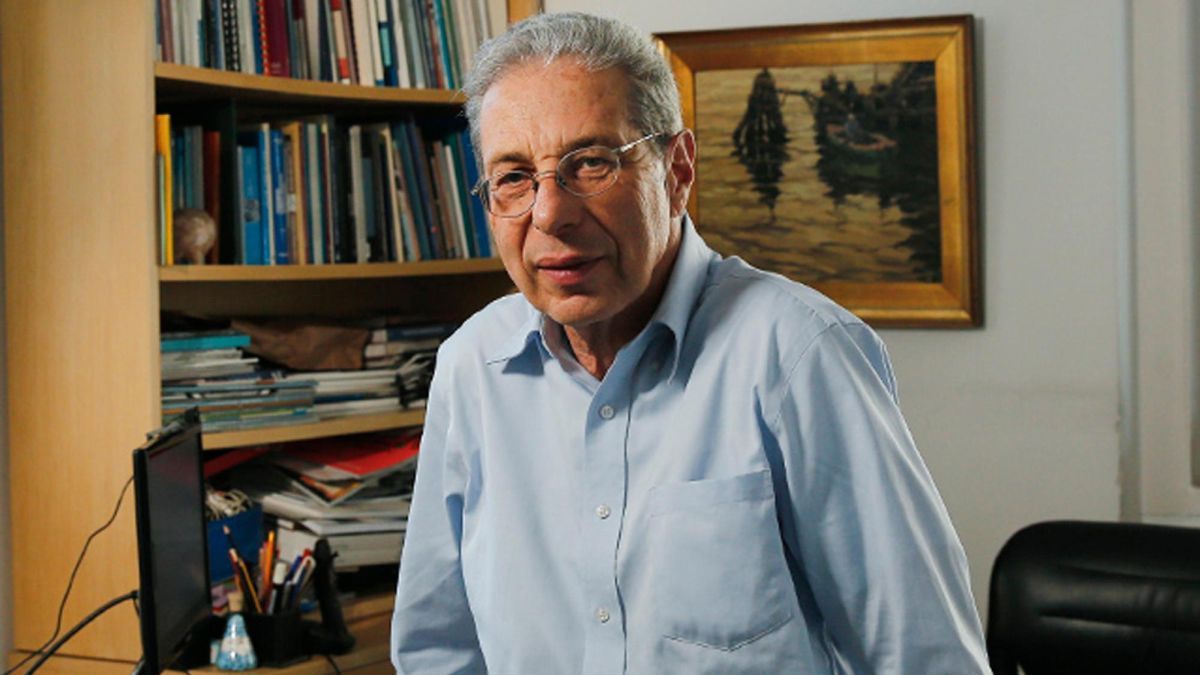Today, far from management, his gaze is totally analytical and reflective and raises the need to focus not only on Argentina’s natural resources to think about development, but, more than ever, in the capabilities of people and how they can add value to the economy. These are some of the points that were touched on in this talk between Marx and Scope.
Journalist: Given your experience with the Argentine debt and taking into account the recent debate on this issue, how do you see the situation of the local debt today?
Daniel Marx: The foreign currency debt You will have no relevant payments this year, practically, and very few next year. Argentina is a country with medium debt, although it is more exposed to exchange rates than others due to the nature of its debt. However, today, the level of indebtedness of Argentina in relation to the percentage of GDP represents. But I think that The main problem that Argentina has today is trust. And this has a whole history behind it, marked by two linked and central aspects: on the one hand, the repeated breaches, which generate mistrust, and, on the other, the fact that we are a country with a very marked economic cycle of ups and downs and that lacks a strong imprint of improvements in the activity or in the fiscal results. In this sense, what many wonder is if Argentina can break these cycles of the past. And therein lies part of the debate we are having today: the challenge of breaking these complex patterns.
Q.: What would have to be done to break these patterns?
DM: I believe that, to achieve this, it is essential to demonstrate the payment commitment and compliance intentions. It is essential to prove that the commitments are really being carried out and that the negative aspects of the past will not be repeated. And the political variable, “the political”, is a very important element in this sense, of course, because the decisions that are made at that level are key.
Q.: When Massa took office as Minister of the Economy, you were going to be part of a special committee dedicated to advising on debt matters, but, in the end, it was not formed. How do you see the Minister’s management today?
DM: I think that Massa has the merit of having achieved stabilize the economy and to transform the view that Argentina was falling into an abyss. That is no longer the case, but we still have a long way to go to take off. It still remains for this to become a consolidated trend and that would favor a more sustainable development. What the Government must achieve in the first place is control inflation and make a significant effort to maintain that achievement over time. And it is that, no matter how much effort is made at this time to reach price agreements, one swallow does not make a summer. Argentina has a relative price issue to resolve, which adds inflationary pressures. On the other hand, we have more restrictive issues, such as tax issues. This is, without a doubt, a year in which these variables interact more than ever due to the electoral seasoning, because campaign years are often years of high spending.
daniel marx
Daniel Marx raises the need for a comprehensive view of the economy.
Q.- What influence does the International Monetary Fund (IMF) have in this task of the Government?
DM: I think that the IMF has a lesser role than is attributed to it in all this work because the responsibility of carrying it out, for me, belongs entirely to Argentina. However, The Fund seems to be supporting the country so that it can meet the objectives with measures such as making some goals more flexible and complying with all disbursements necessary so that the country can cancel the pre-established payments. Some of the goals, however, such as reserves, will not be easy to meet in this first quarter of the yearbut I understand that there conversations to make them flexible. The issue is that the Fund does not give away the money and has demands that other international organizations do not have. This year does not offer the most favorable context for Argentina, although there will be elements that can help. Specifically, on the one hand, we have the data that the export prices have fallen, but they are not so depressed as to say that they are totally unfavorable. On the other hand, interest rates in the world have risen, but they are not at stratospheric levels, which could bring great problems to local economic development. I think that, going forward, we are going to see, surely, a more lax IMF in the first half of the year and a little more demanding afterwards. In addition, we must not forget that, in the meantime, we have a change of government, which may be of another political sign, which will affect the entire process and negotiation.
Q.: What elements should the next government consider in putting together an economic plan?
DM: The new management should advance in a program or plan in which fiscal matters are highly relevantbut, above all, I consider that it will be key that the economy is more efficient, less prebendary and in which people are given more opportunities. I think that our country has many possibilities and that the main engine is the capacity of the people. Don’t just think about natural resources. I think that this capacity should be reflected in different activities, such as technological development, biological projects, etc. It is a central resource that must be developed. In this context, I consider that the exchange rate must be observed and try to avoid imbalances. But the functioning of society and its rules of the game are reflected in the levels of exchange rates. It is a cause and effect. You have to focus on the different variables of the economy and keep in mind that everything is part of a machinery that makes the vehicle move. It is necessary to analyze how the dynamics of all the variables are, ranging from the dollar, through the administration of resources and their reinvestment, to inflation and developments in the research sector.
Source: Ambito




